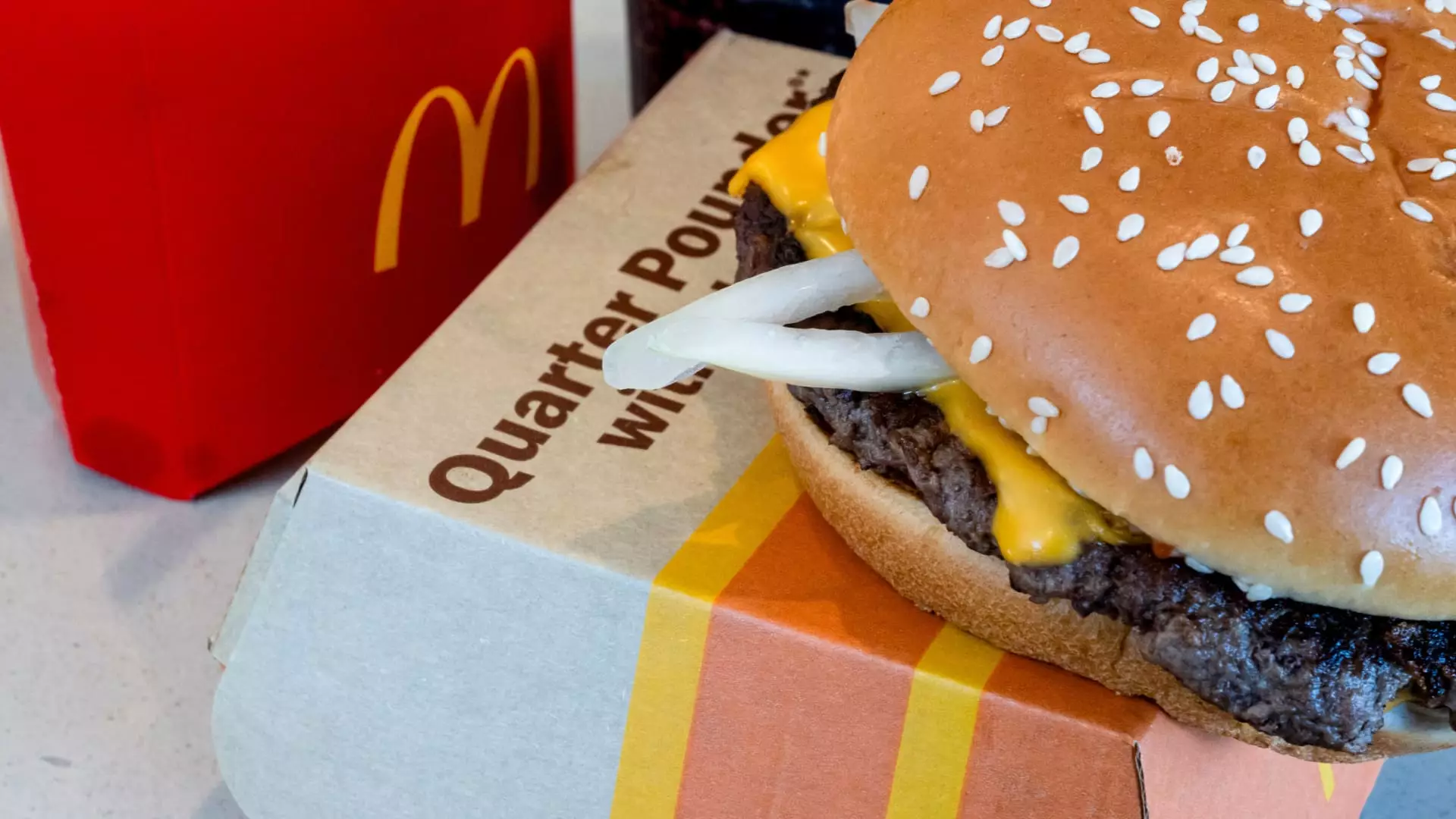Recently, a significant health crisis erupted, with the Centers for Disease Control and Prevention (CDC) reporting a deadly E. coli outbreak associated with McDonald’s Quarter Pounders. The numbers are alarming: as of Friday, 75 cases have been confirmed across 13 states. Among these, 22 individuals have required hospitalization, and there has been at least one confirmed fatality, an older adult from Colorado. The situation is evolving, and the CDC warns that the true number of cases is likely much higher. They emphasize that many people with E. coli infections do not seek medical attention, thus slipping under the radar of official statistics.
The median age of those affected ranges from 13 to 88 years, showcasing that this outbreak does not discriminate across demographic lines. The agency highlighted that out of 61 interview subjects, a striking majority (42 individuals) reported eating at McDonald’s, further linking the outbreak to their food. This introduces a troubling quandary for the fast-food giant, not just from a health perspective but also from a public relations standpoint.
In direct response to the rising number of cases, McDonald’s stock fell by 2%, with a total decline of 6% since the outbreak was first announced. The financial implications of such a crisis can be profound, especially for a company whose core items contribute billions to its annual revenue. Experts have pointed out that while immediate panic may lead to a decrease in customer visits, the long-term brand impact may not be as devastating if managed swiftly and effectively, akin to a previous E. coli outbreak linked to Wendy’s.
The current situation compels McDonald’s to respond strategically. The fast-food chain has stopped the distribution of slivered onions, believed to be a potential source of contamination, from its supply chain in affected areas such as Colorado, Iowa, and Kansas. They’ve even taken preventive measures by removing Quarter Pounders from over 20% of their U.S. outlets.
Health officials are not only scrutinizing the slivered onions but are also investigating McDonald’s beef patties as possible culprits behind the outbreak. The complexity of tracing the source of foodborne illnesses underscores the challenges presented in such situations. The supplier implicated in the onion contamination is Taylor Farms, a California-based produce giant, which has since recalled several onion products.
The fast-food landscape is often interconnected, and competitors like Burger King, KFC, and Taco Bell have also pulled onions from select locations out of an abundance of caution. The ripple effects of one company’s crisis can lead to a wider reassessment of food safety protocols industry-wide.
As McDonald’s prepares to report its third-quarter earnings, stakeholders are keenly observing how this incident might skew the financial outlook. Wall Street analysts projection that McDonald’s would report a modest same-store sales growth of merely 0.5% could now be jeopardized by this outbreak. Not only is consumer trust a delicate balance to maintain, but the display of a proactive approach to food safety is essential for mitigating harm to the brand.
In the short term, McDonald’s must prioritize customer reassurance that their food remains safe. This will involve transparent communication alongside effective measures to rectify any lapses in safety. When a brand as widely recognized as McDonald’s is under scrutiny, any misstep can result in losing loyal customers who may opt for competitors during their dining choices.
The E. coli outbreak linked to McDonald’s Quarter Pounders serves as a stark reminder of the vulnerabilities inherent in the food supply chain. As the CDC continues its investigation, it becomes increasingly evident that the repercussions are multifaceted, impacting not just health, but corporate reputation and financial performance.
While experts remain cautiously optimistic about McDonald’s ability to recover from this incident, the importance of stringent food safety practices cannot be emphasized enough. For consumers, staying informed about outbreaks is key to making educated dining choices. As for McDonald’s, its path forward will require diligent efforts to restore public confidence and ensure a comprehensive assessment of its food safety protocols to prevent future outbreaks. The fast-food giant stands at a crossroads, where strategic decision-making in a time of crisis will define its reputation for years to come.

Leave a Reply